ChadMapAugust 16...19, 2014 A child is named on the seventh day after birth, and guests gather for the occasion. Everyone takes off their shoes, sits down in circles of five or six and eats with their hands from plates arranged on large trays. Men and women eat separately. 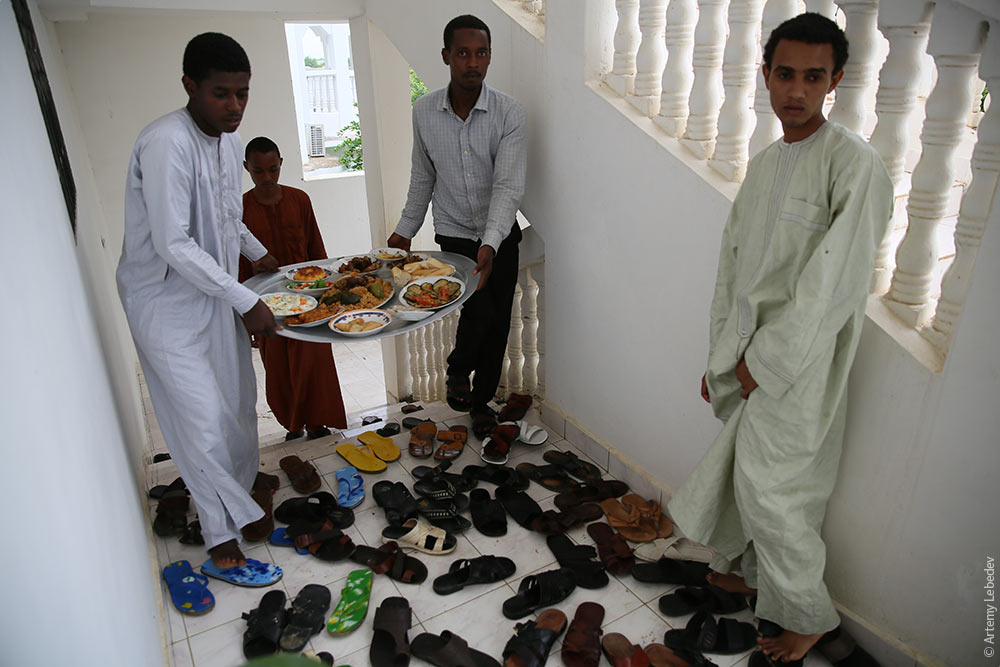 Practically the only opportunity for a young man to meet a young woman is at someone’s wedding. The celebration, at which women and men mingle, takes place after the actual wedding—also on the seventh day. 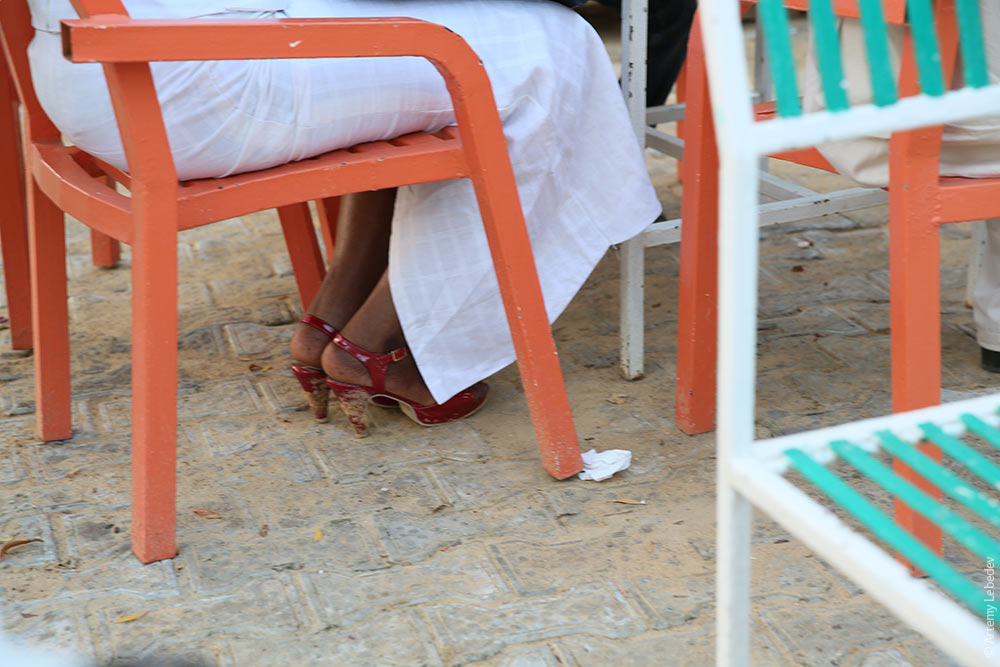 Chadians really don’t like to be photographed. 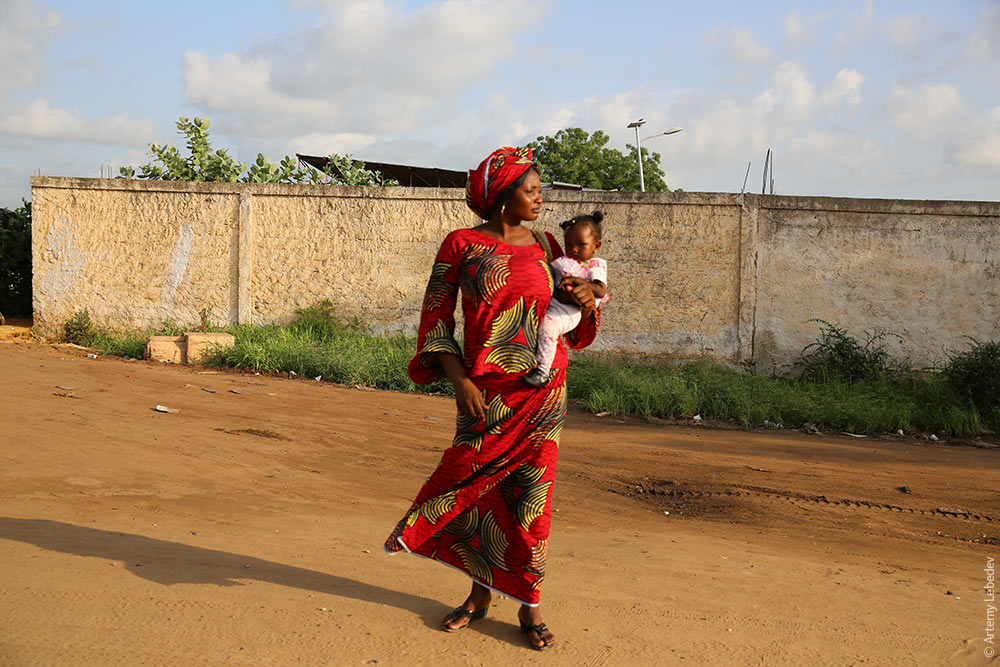 But if you talk to them a little first, they don’t mind at all. 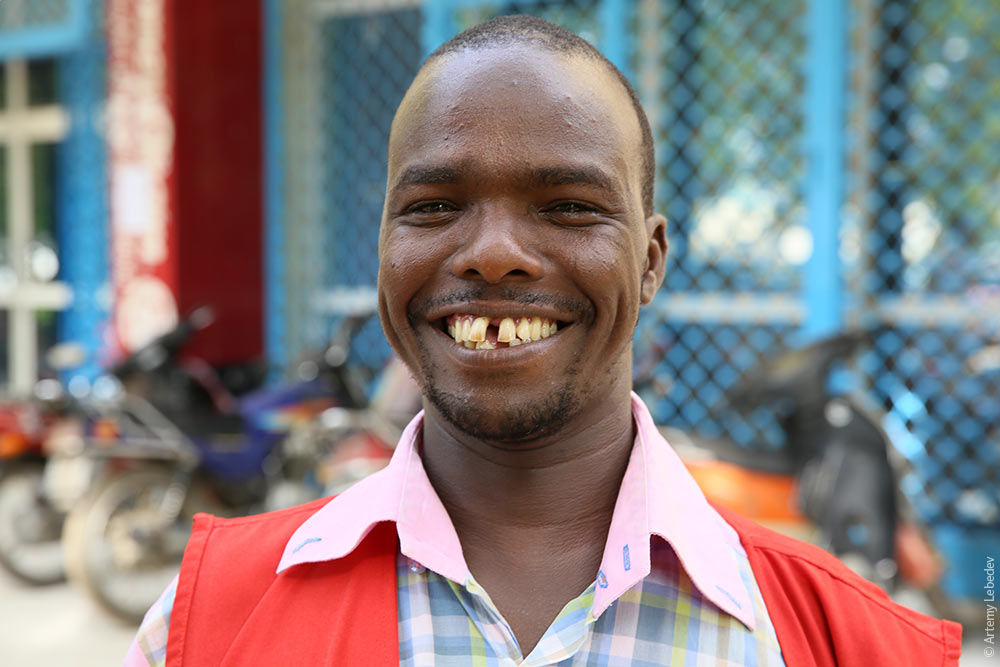 A Chadian license plate. 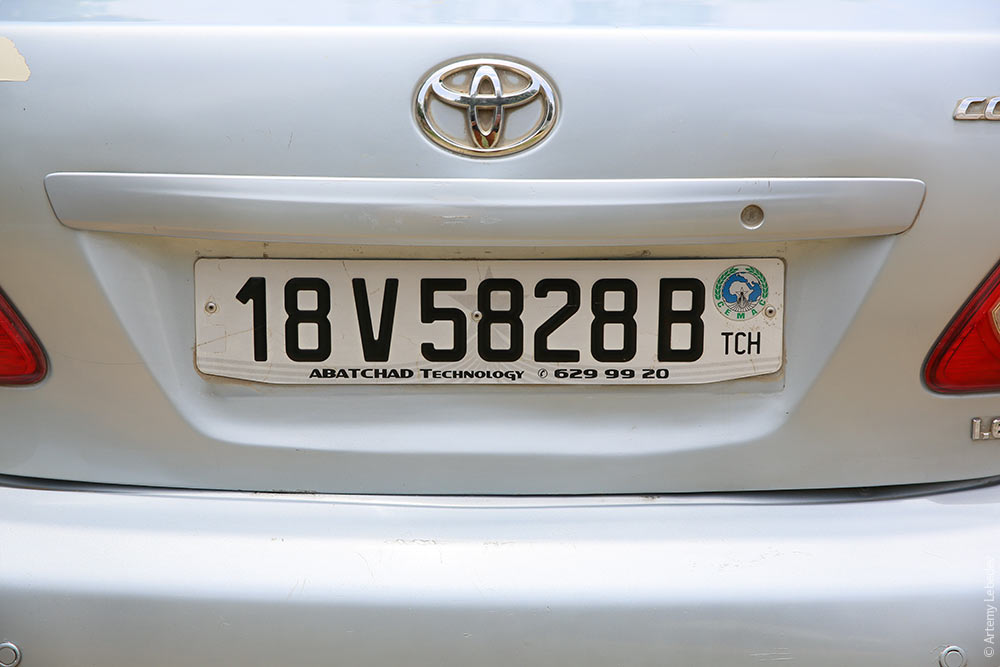 Stickers for various mandatory taxes adorn the windshield of every car. 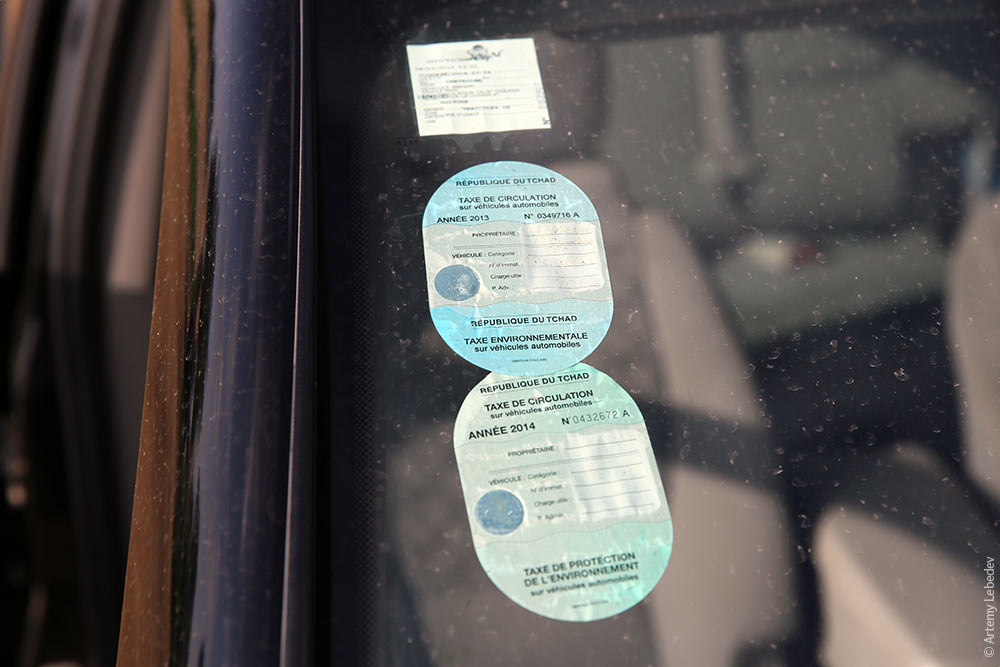 The most popular dish is goat meat. The carcasses are stretched out over sticks like sails and left to air out along the roads. This way, the meat doesn’t rot, and afterward it’s cooked over coals. 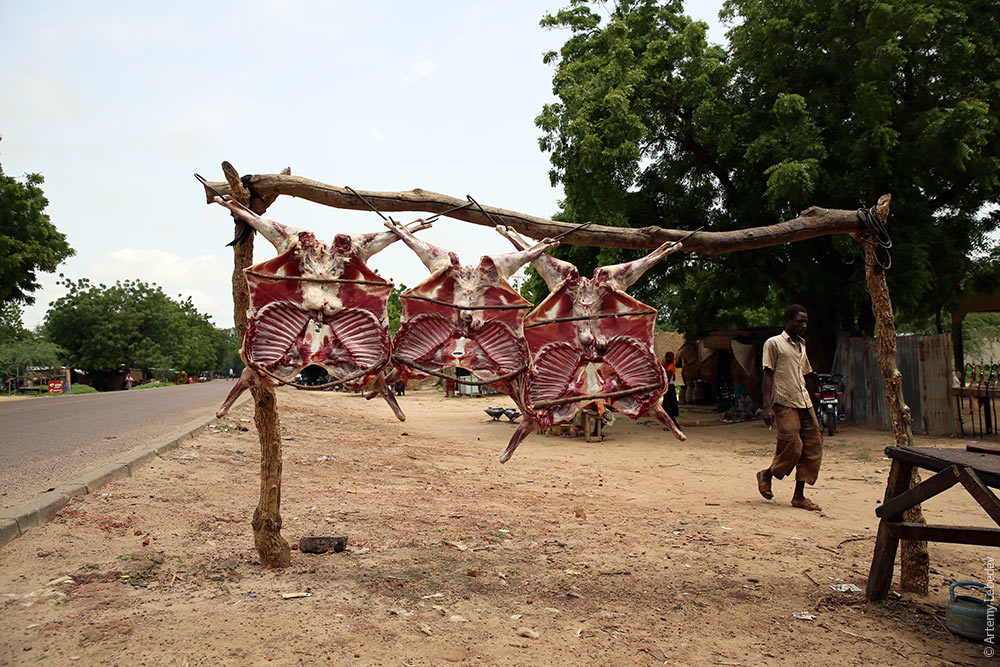 Tradition dictates that every traveler and person on foot has the right to a free drink of water. Conscientious citizens set out vessels of water next to their homes so that any passerby can quench their thirst (the same tradition exists in Sudan). 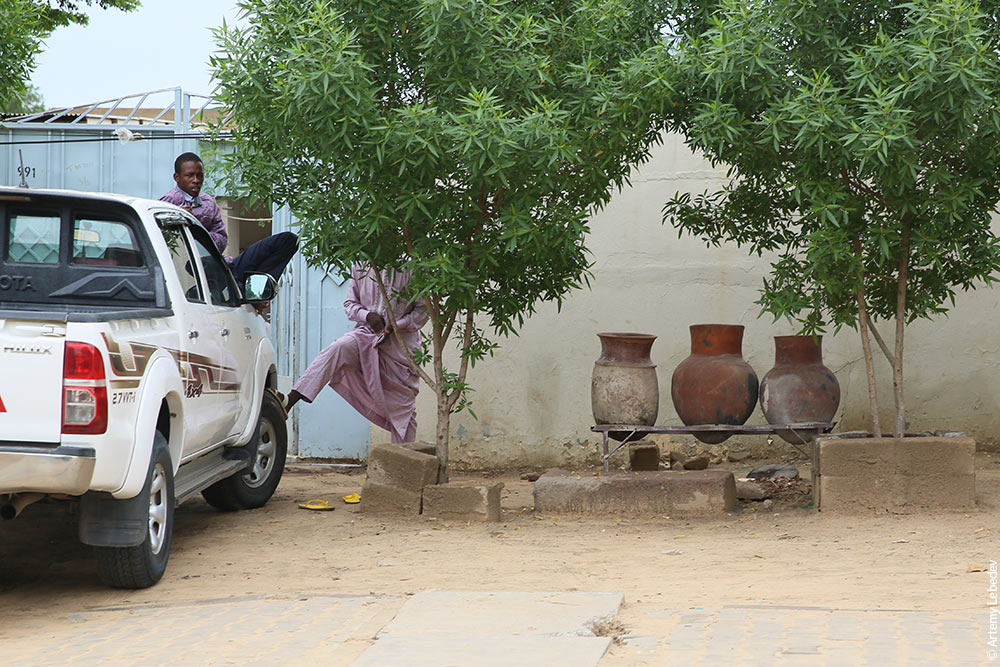 Gas stations are easy to recognize at night by their design: a thick flat roof atop very tall pillars, lit from the underside with a large number of energy-efficient bulbs. 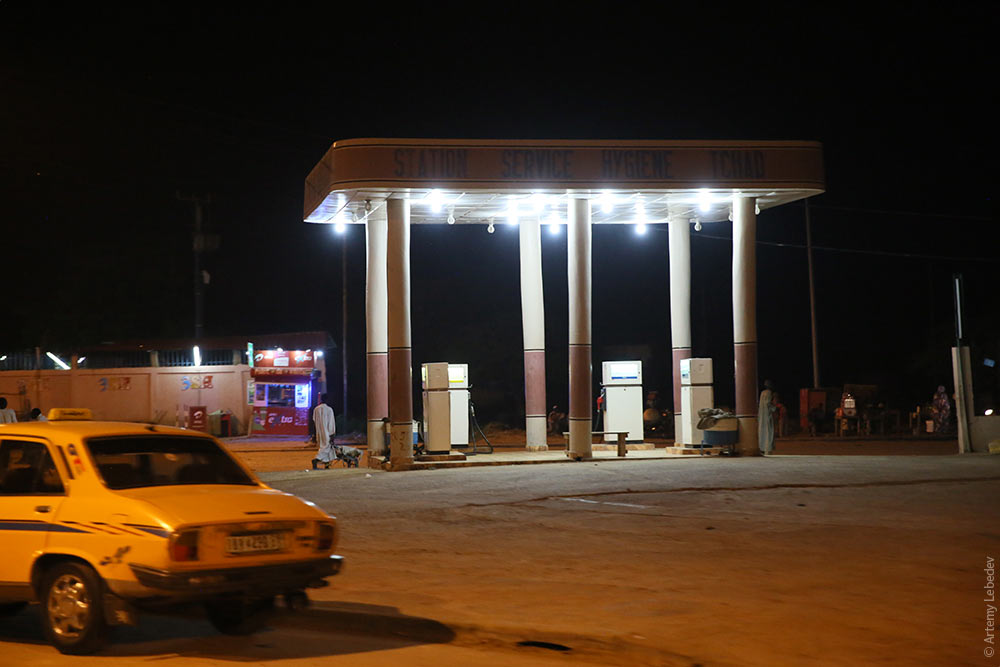 The most surprising discovery about Chad was that people don’t generally drink milk here. Stores sell only sweetened milk as a dessert drink. N’DjamenaMapSecurity checks begin on the roads after 9 p.m. But overall, the atmosphere in the city is completely calm. By day, N’Djamena is a fairly bustling and unattractive place. 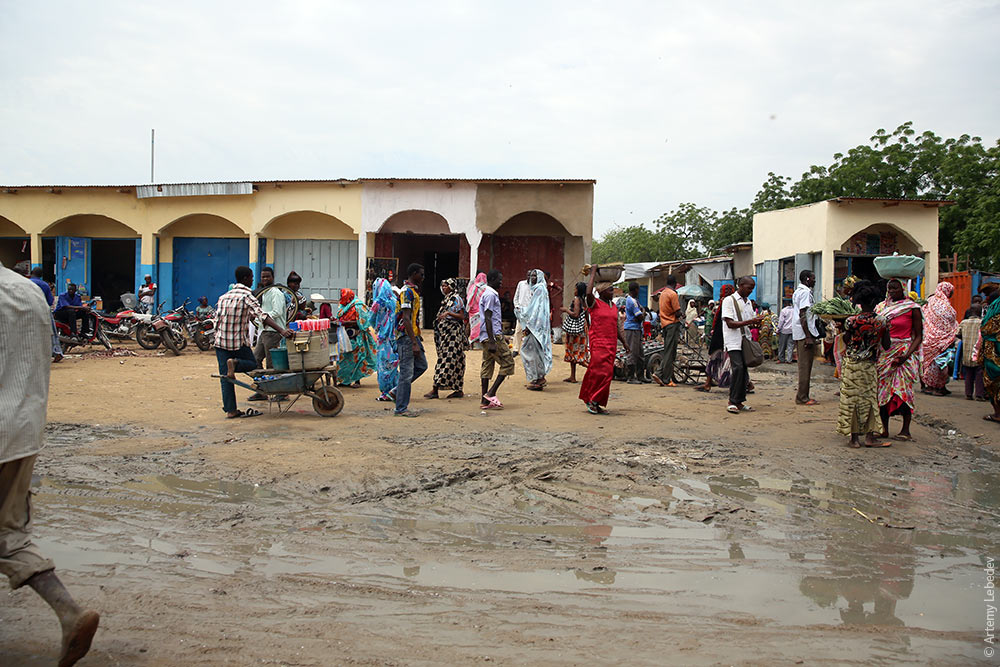 When I previously read history books that talked of entire cities being wiped off the face of the earth by war, so that not a trace was left, I always had a hard time imagining how that’s possible. Now, having visited N’Djamena, I know. It’s just that there’s nothing to look at here even pre-war. 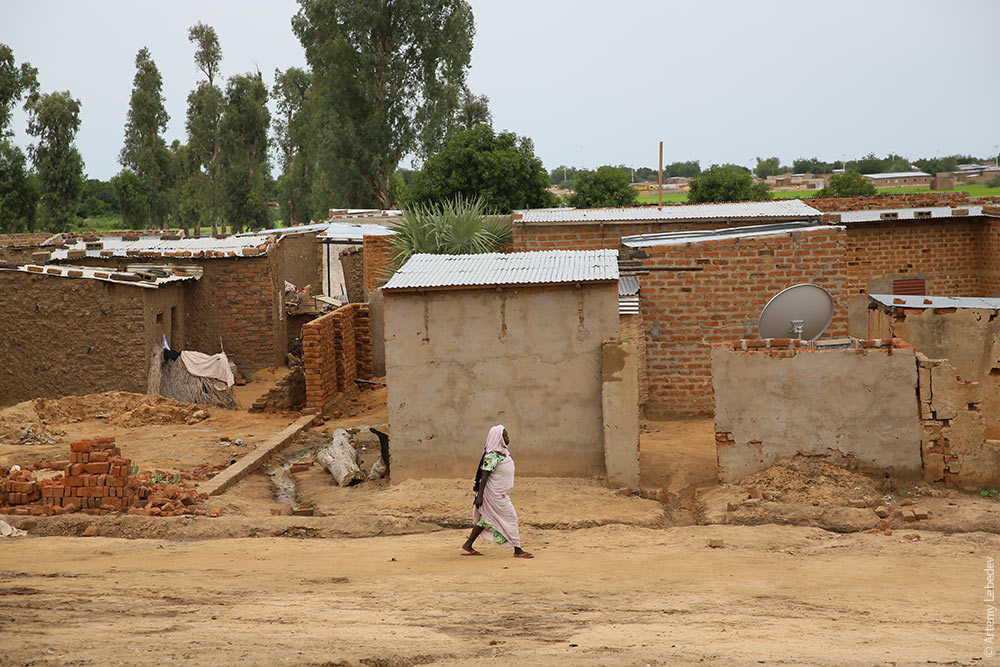 A dental clinic. One with a sense of humor, judging by the gold tooth. 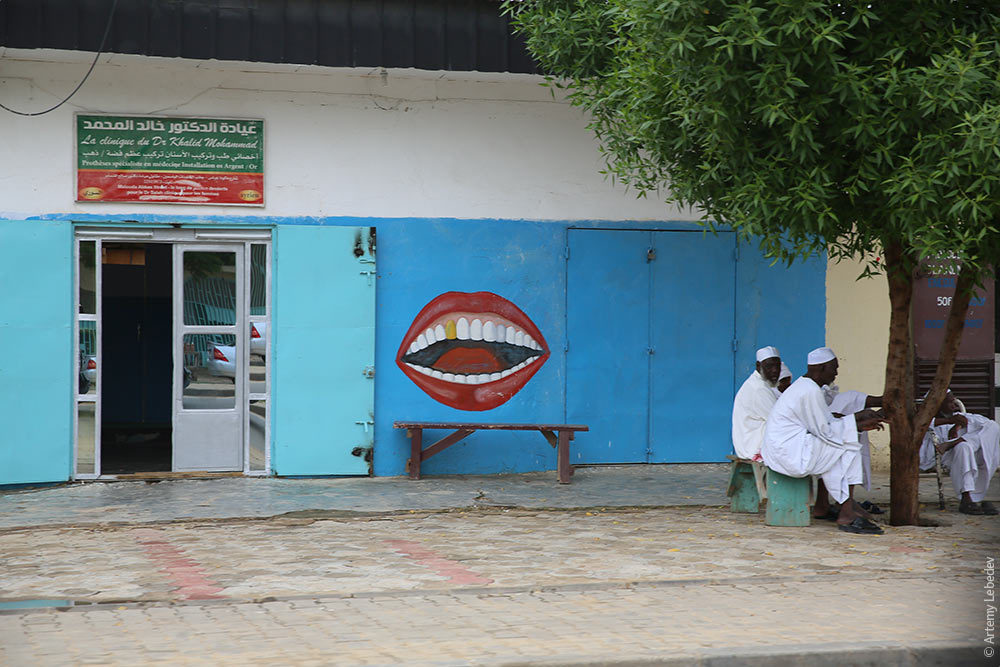 A university bus stop. 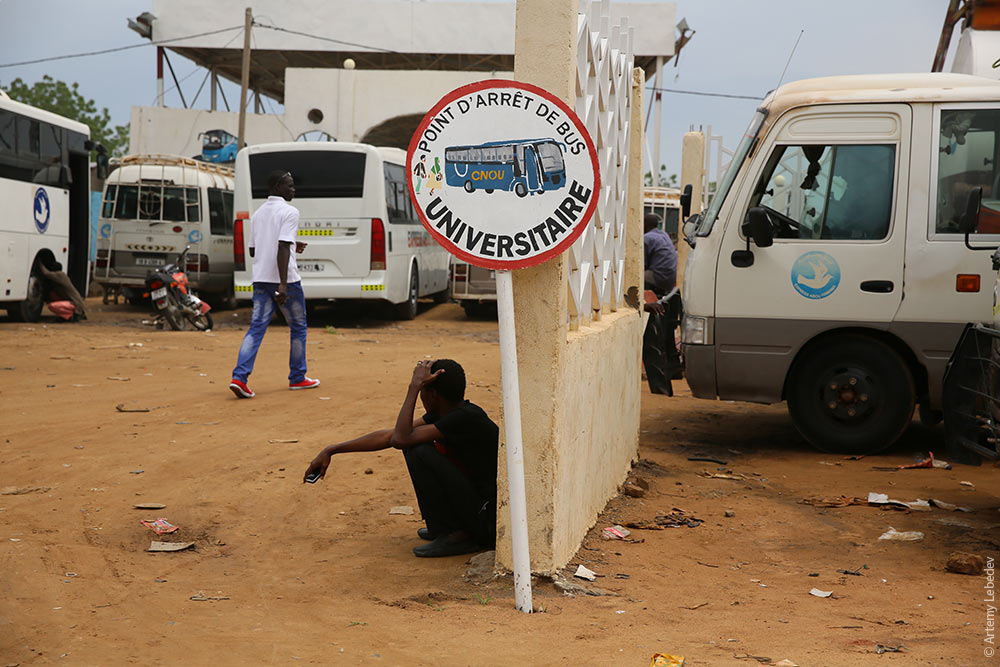 A traffic light. 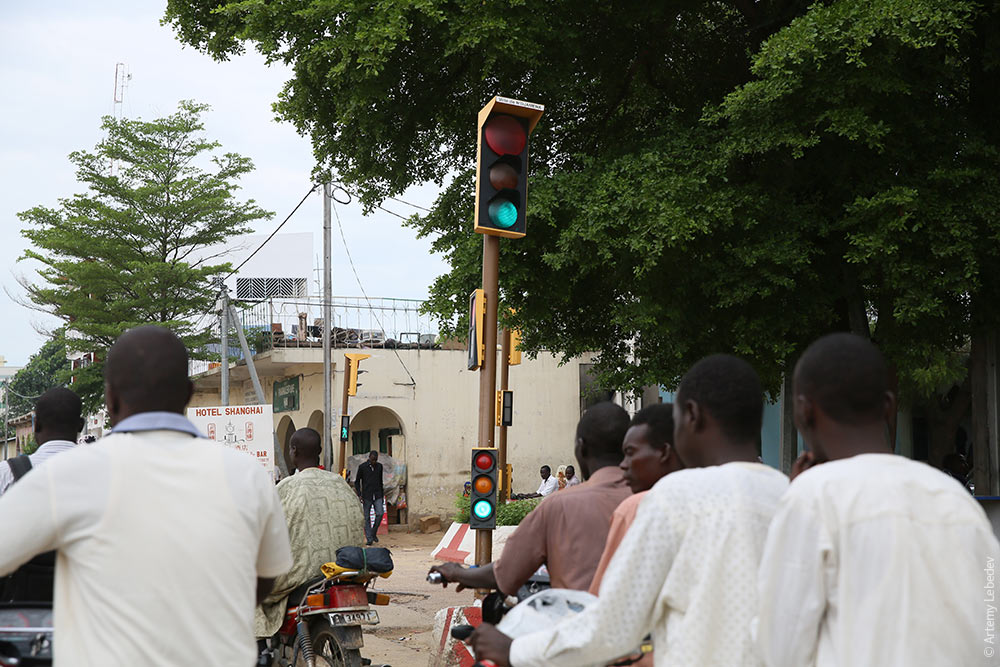 An improved road downtown. 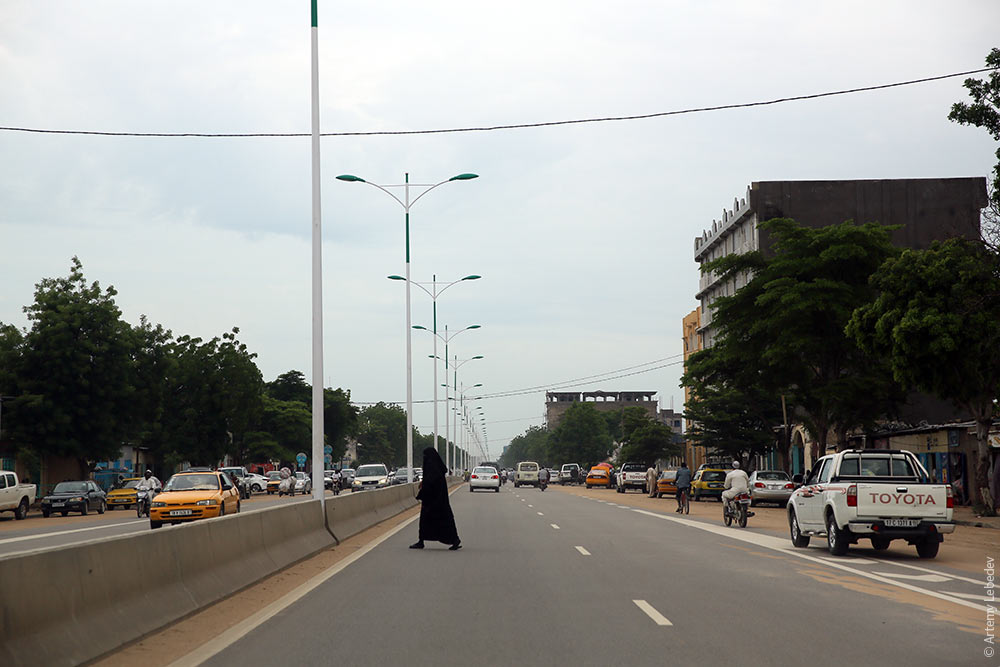 A regular road. 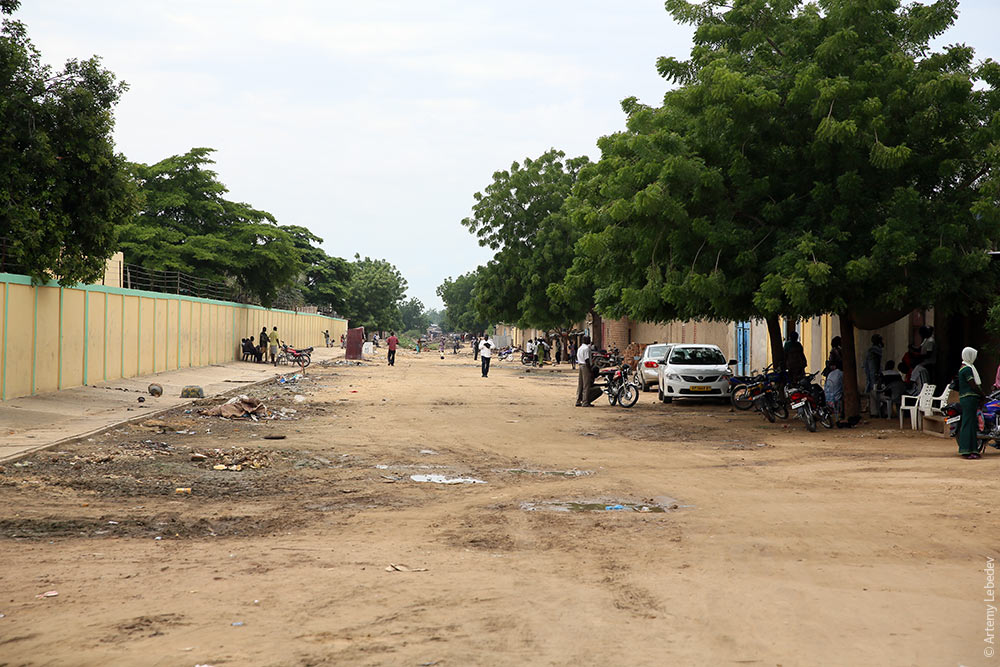 A roadside open-air market. 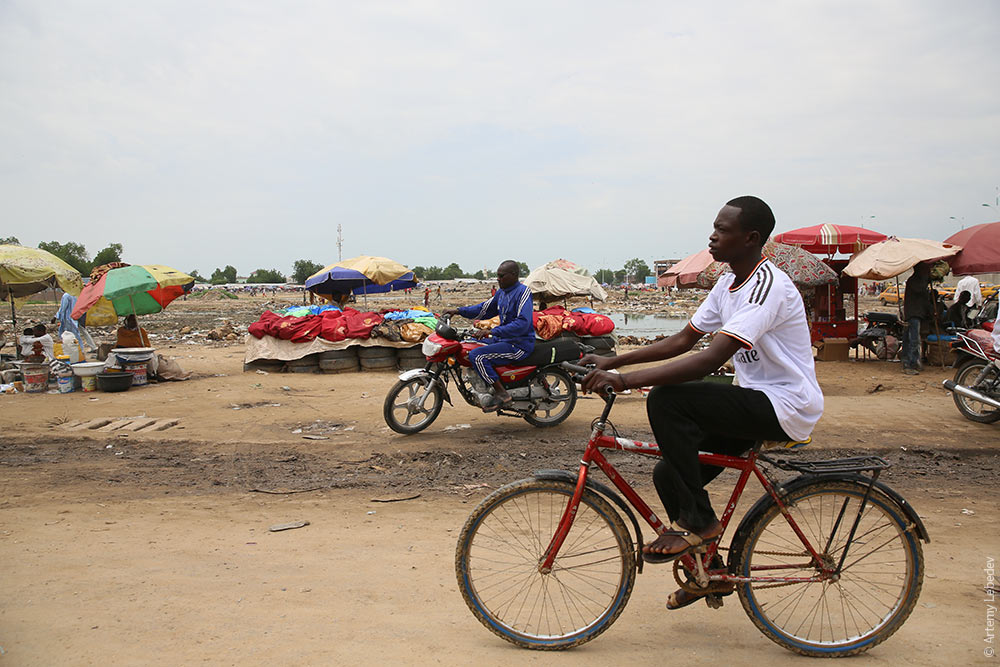 Motorcyclists. 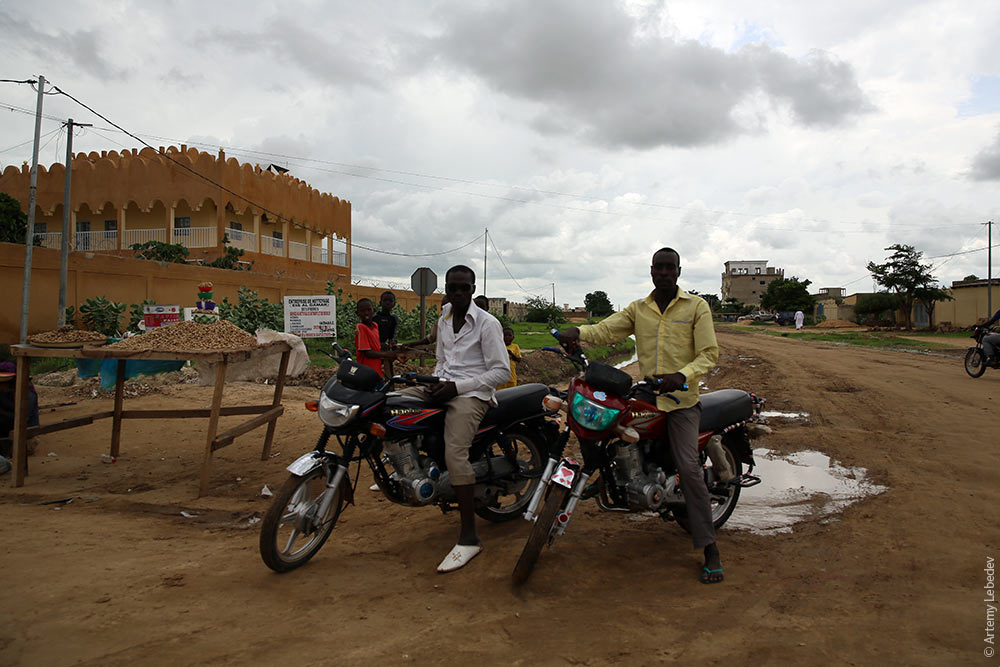 The motorcycle parking system is clever. The attendant has lots of paired number tags prepared when you pull up. 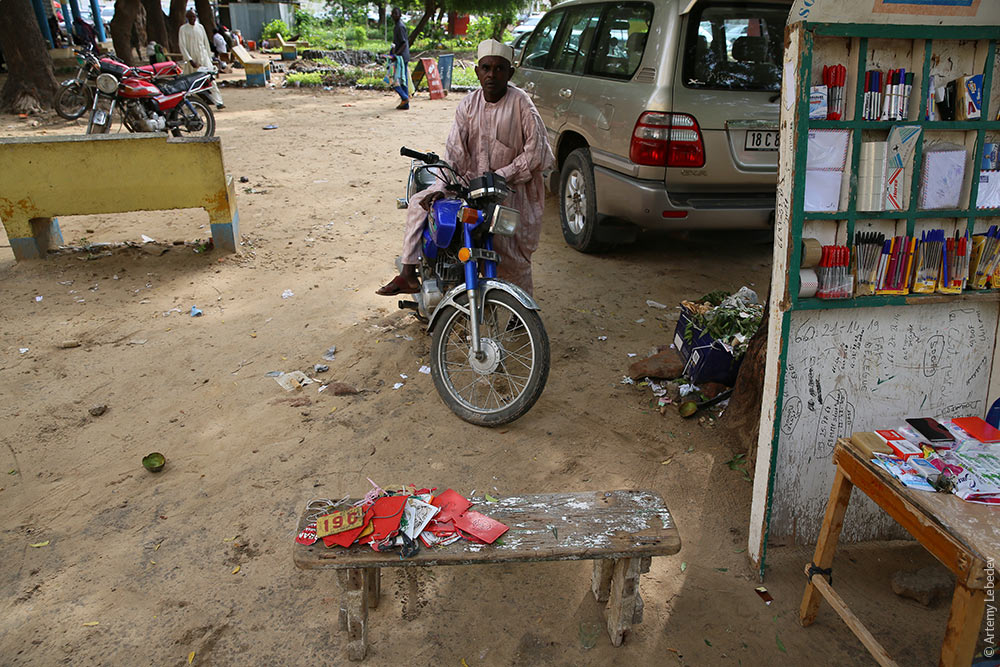 One tag is given to the driver, the other goes on the handlebars. A small fee ensures the attendant won’t mix up the numbers. 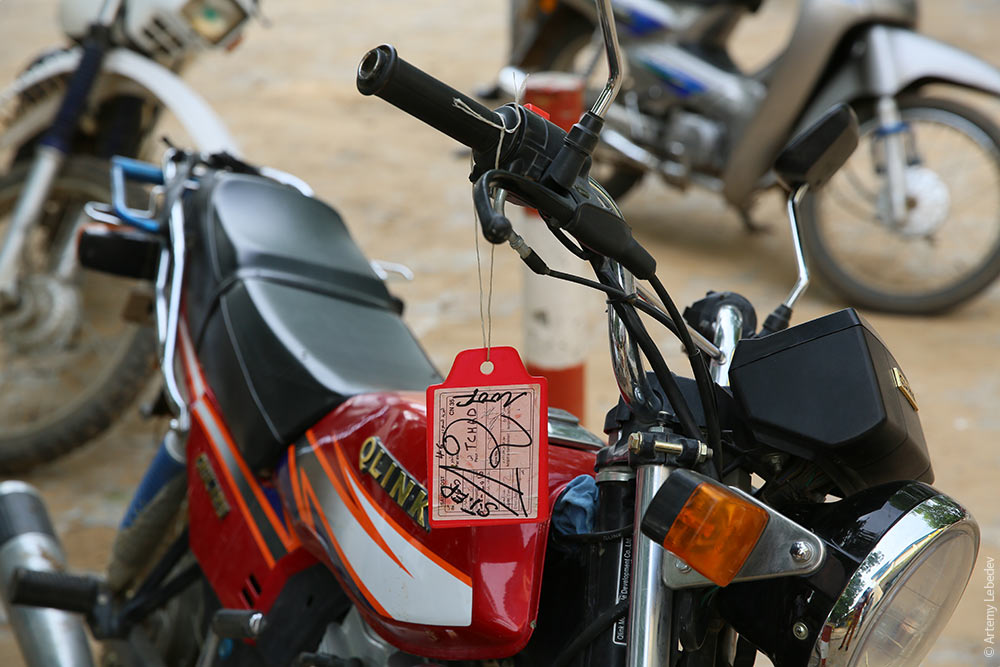 A street ice block vendor uses a bicycle crankset to break up a large chunk of ice. 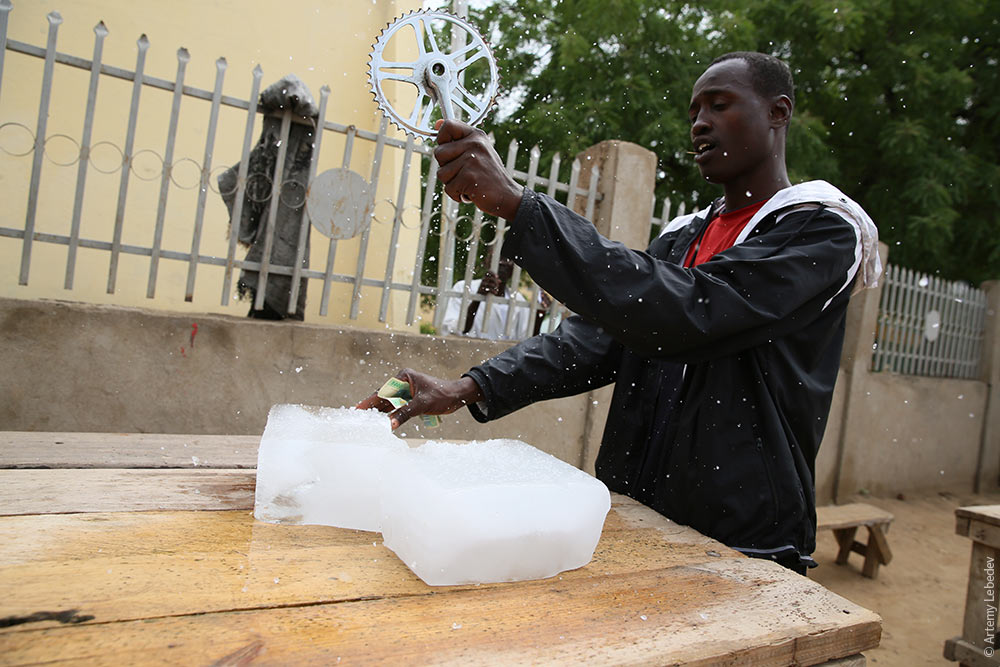 The entire city is covered with PSAs urging drivers to obey traffic rules lest they end up like in the picture. 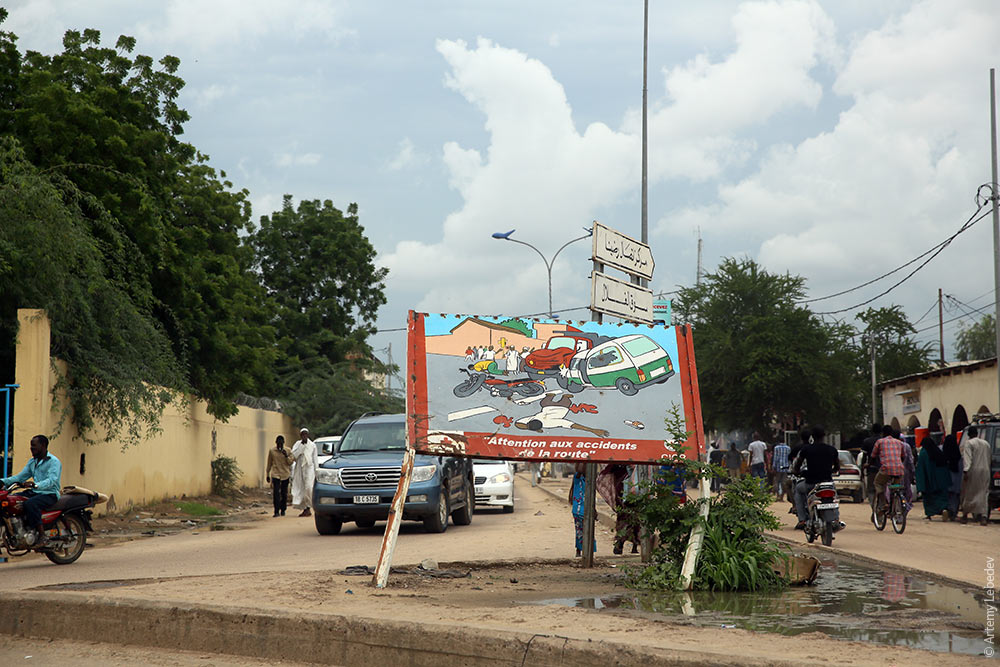 An appeal to go to the doctor for free AIDS medication. 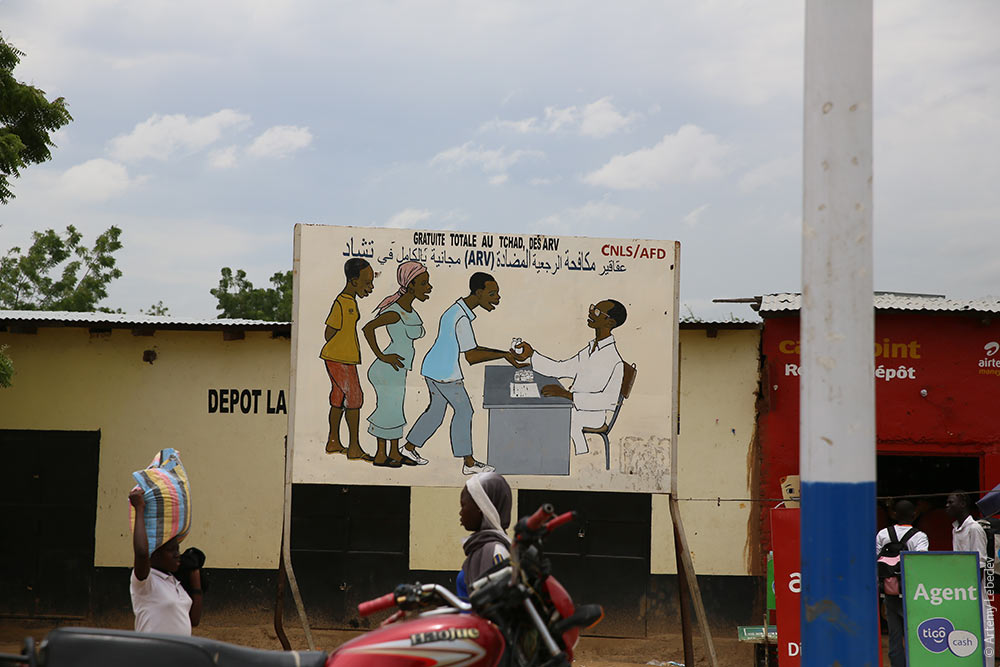 A cultural event. Black people in traditional tribal ornaments dance around an unhappy crowned crane that’s had its wings clipped and its legs tied. All it can do is hop in place apprehensively. This is a show for locals at some trendy café, there wasn’t a single white person in the room (at first I wanted to write that there wasn’t a single foreigner, but then I realized I wouldn’t have been able to recognize a visitor from Sudan or Niger). 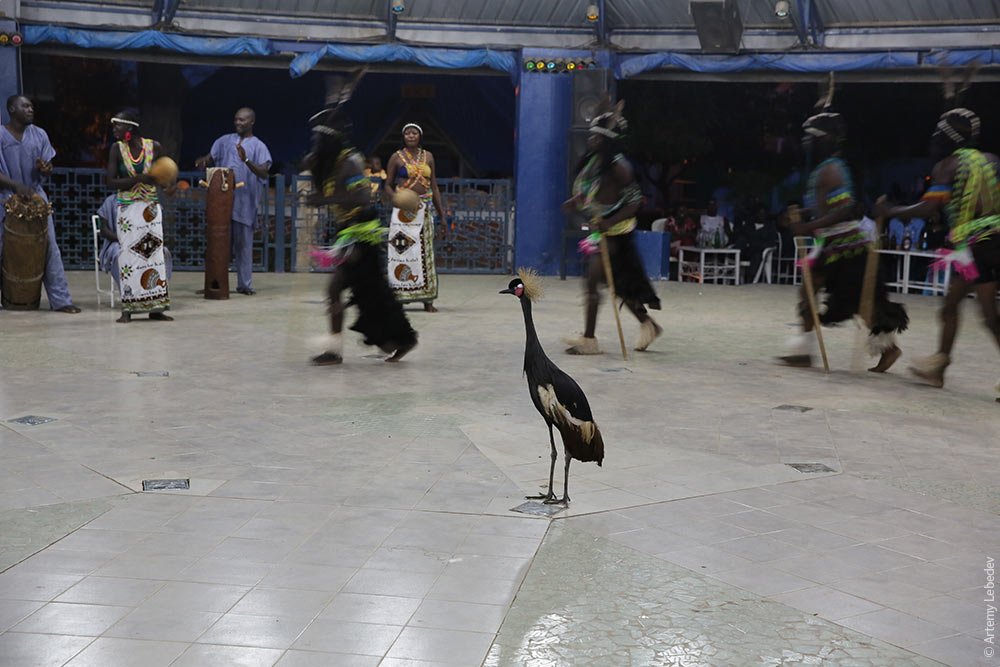 The beer is exclusively non-alcoholic. 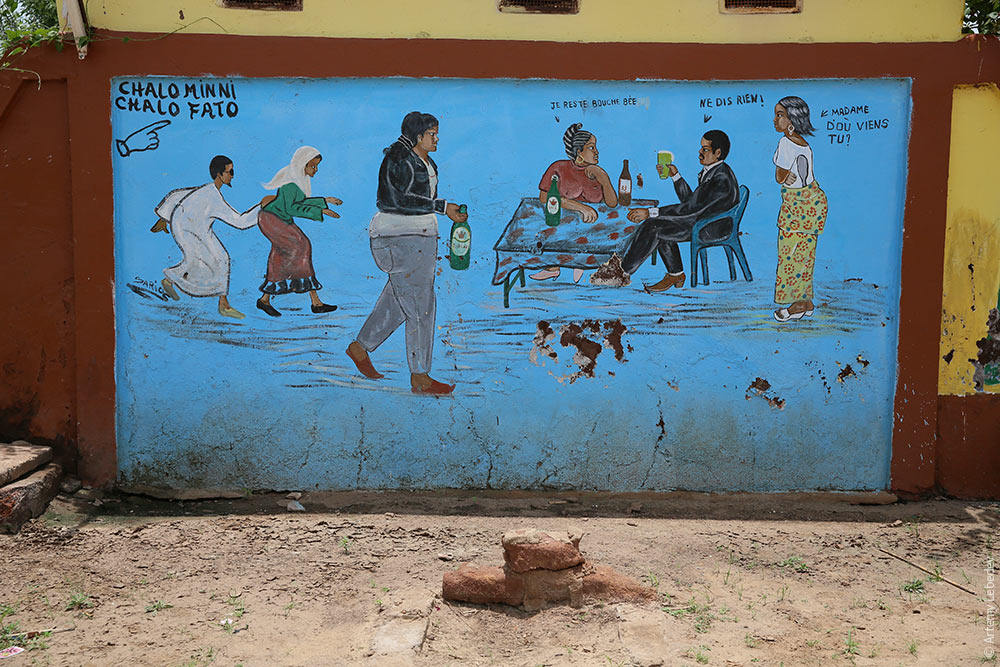 A road digger. 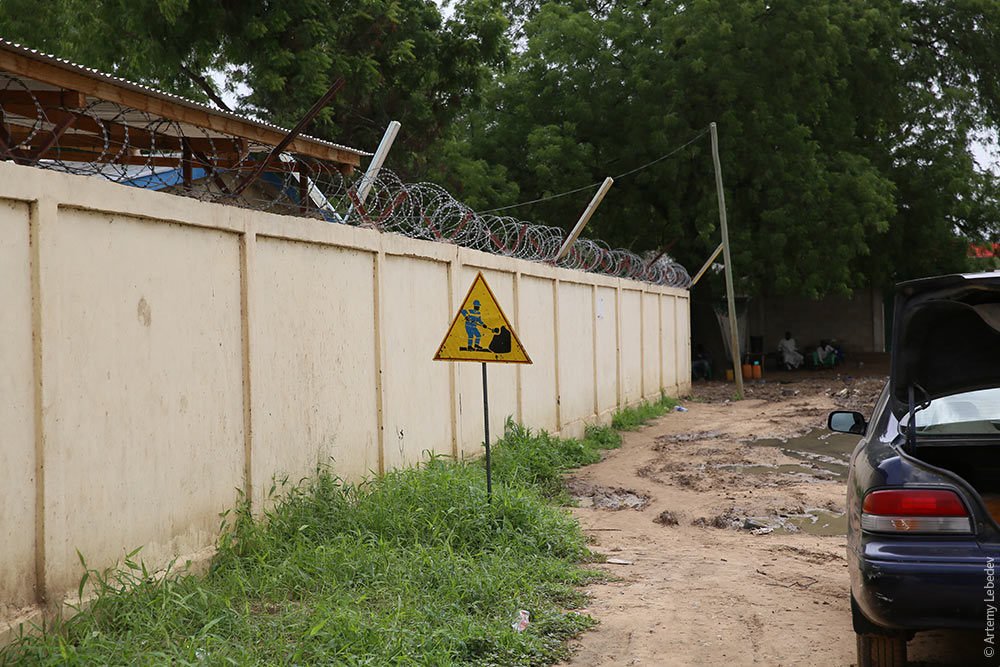 An African sculptor who actually learned anatomy would be insulting his colleagues. 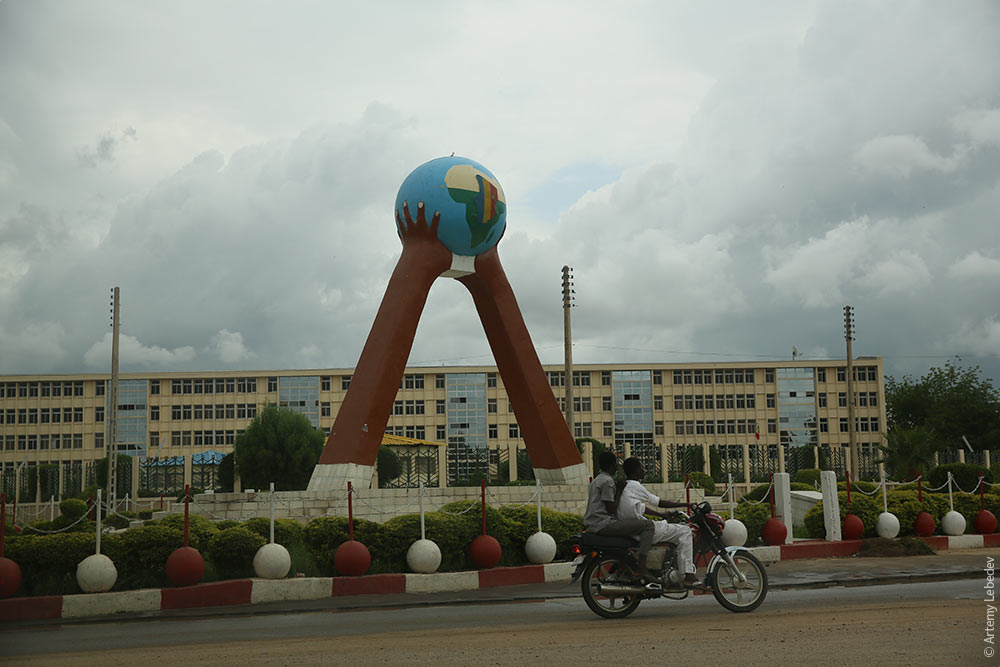 Lake ChadMapWhen Gumilev wrote his verses about Lake Chad (“Listen: far, far away on the shores of Lake Chad / Wanders a graceful giraffe”), he didn’t think I’d come here and check. There have never been any giraffes here. 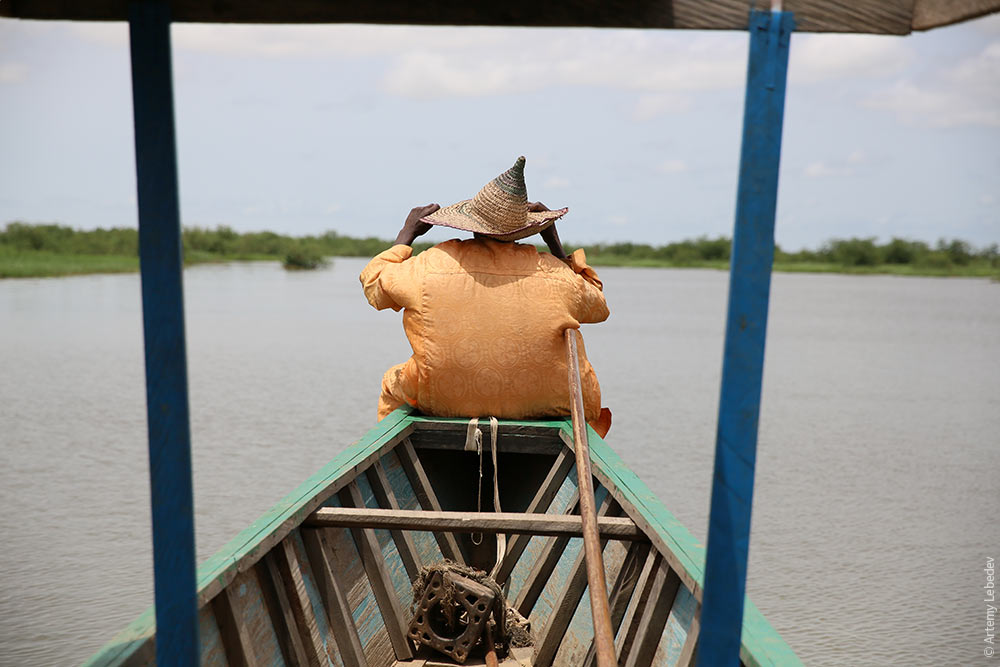 But there are plenty of crocodiles. The locals catch them and keep them on a leash for entertainment. Some are completely tame and roam around with the chickens, while others are quite vicious. 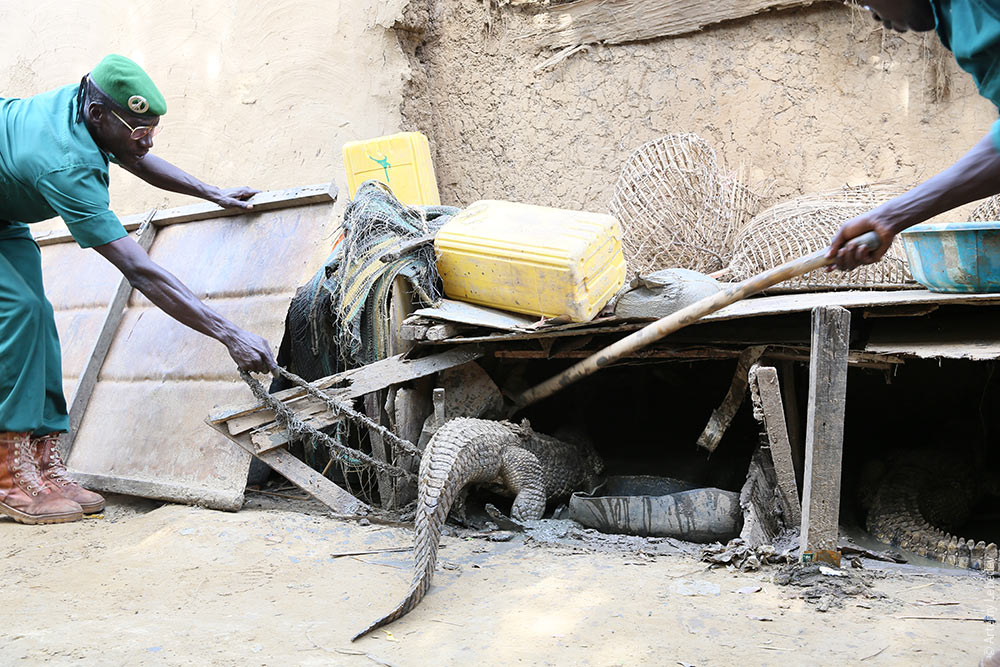 Children have their own entertainment: a bird on a string. 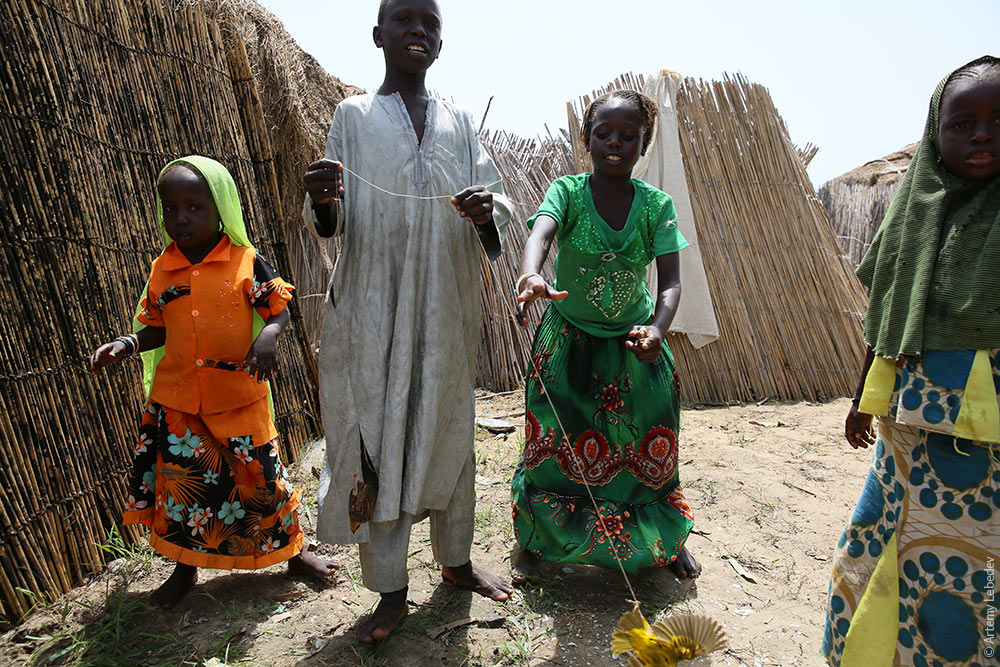 There’s plenty of fish here. People catch it as well, but rather than playing with it, they dry it and fry it. 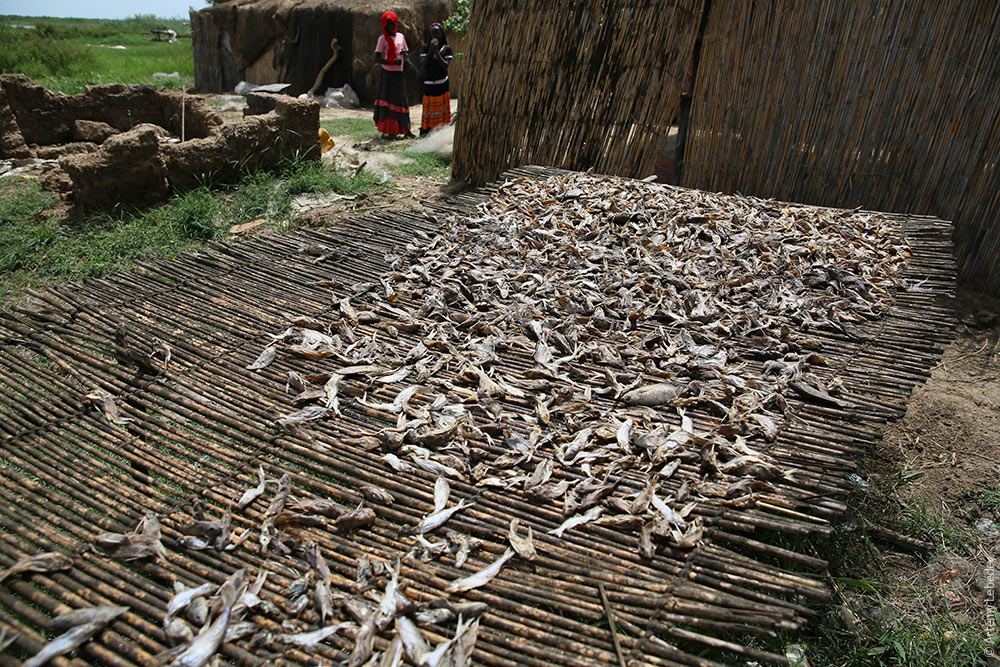 Here’s an excellent solution: using fan covers as grills. 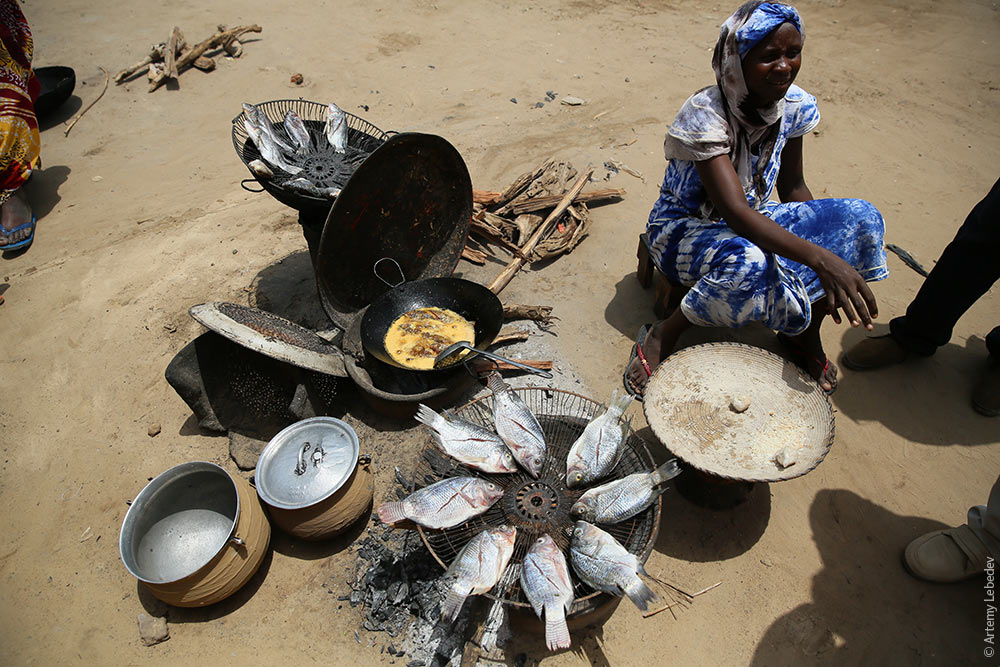 This woman has so many droplets of sweat on her forehead that it’s like a soft drink advertisement—they always show glasses and bottles with beads of condensation like this on them. Only the bottles simply came out of the fridge, while the woman fries fish in the hot sun all day. 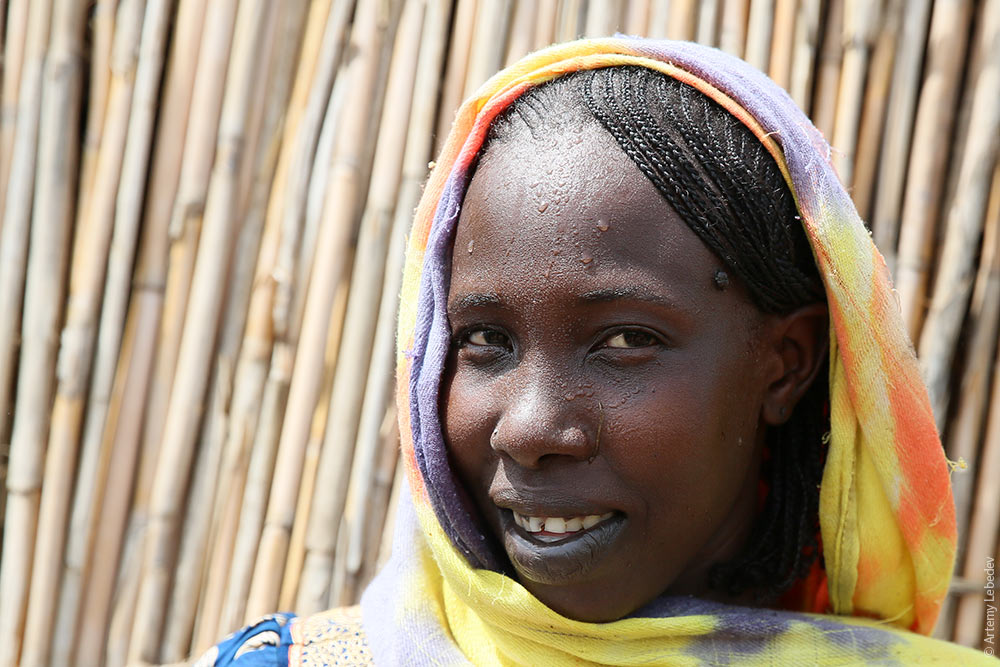 Beautifully skinned fish. 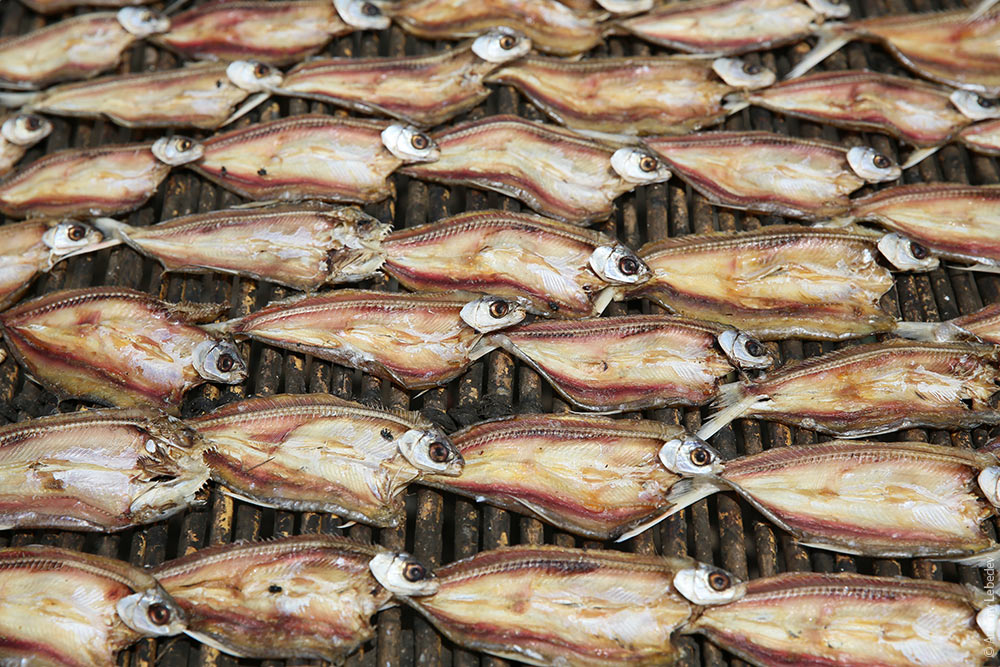 Untangling nets. 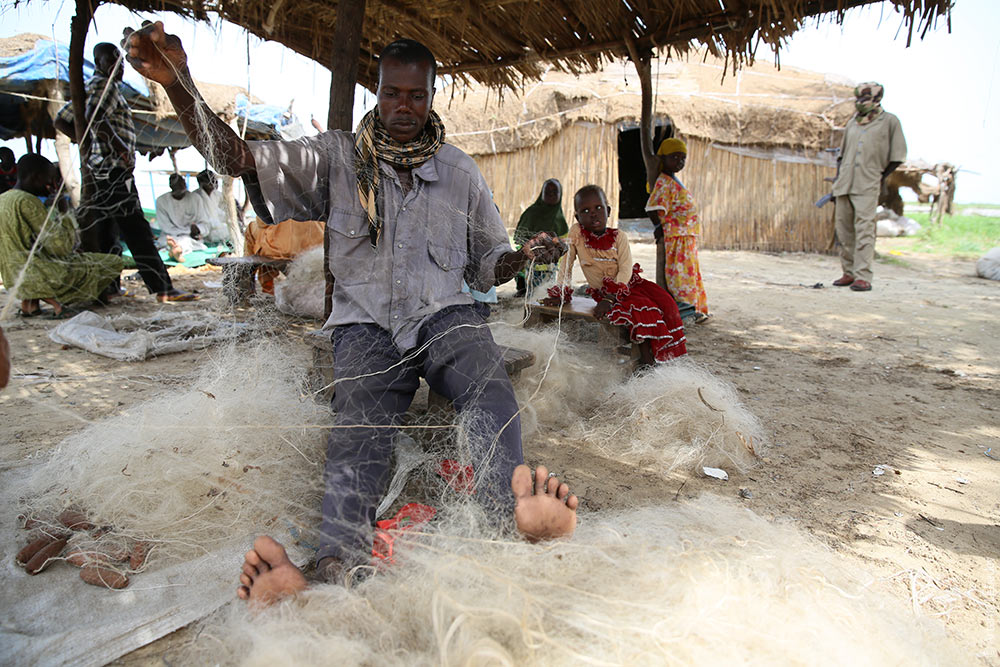 I’m in a fishing village on an island in the middle of Lake Chad. 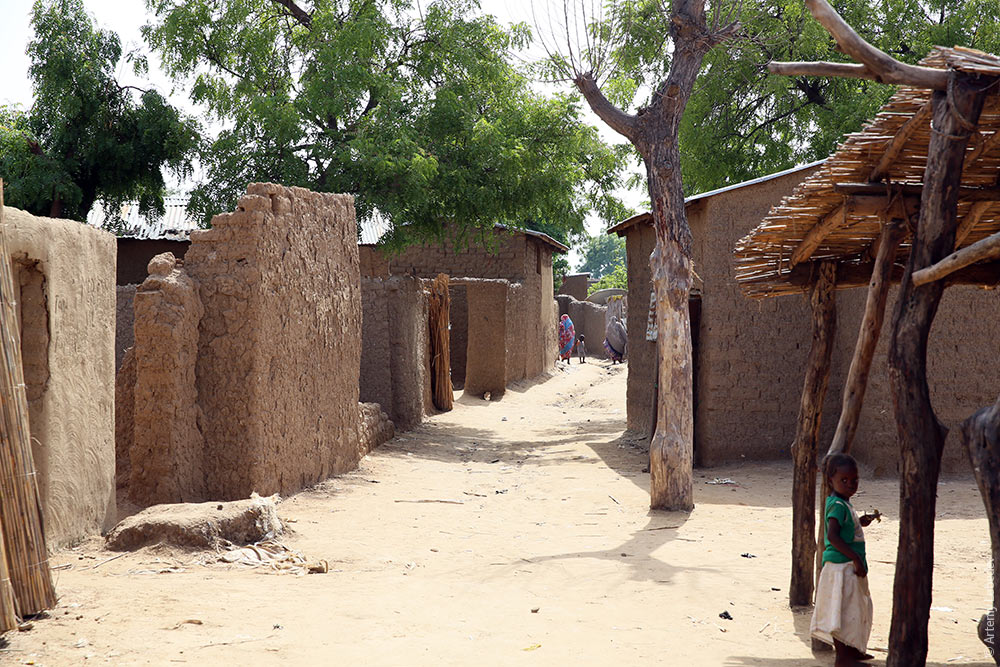 Naturally, my arrival doesn’t go unnoticed. A horde of children attacks me, demanding that I photograph each and every one of them (when they grow up, they’ll stop). The US goes to great lengths to make people disregard skin color and see each other simply as people. Alas, African children are unfamiliar with this concept, so they absolutely have to see and touch a person whose entire body is white (and not just his heels and palms like black people’s). 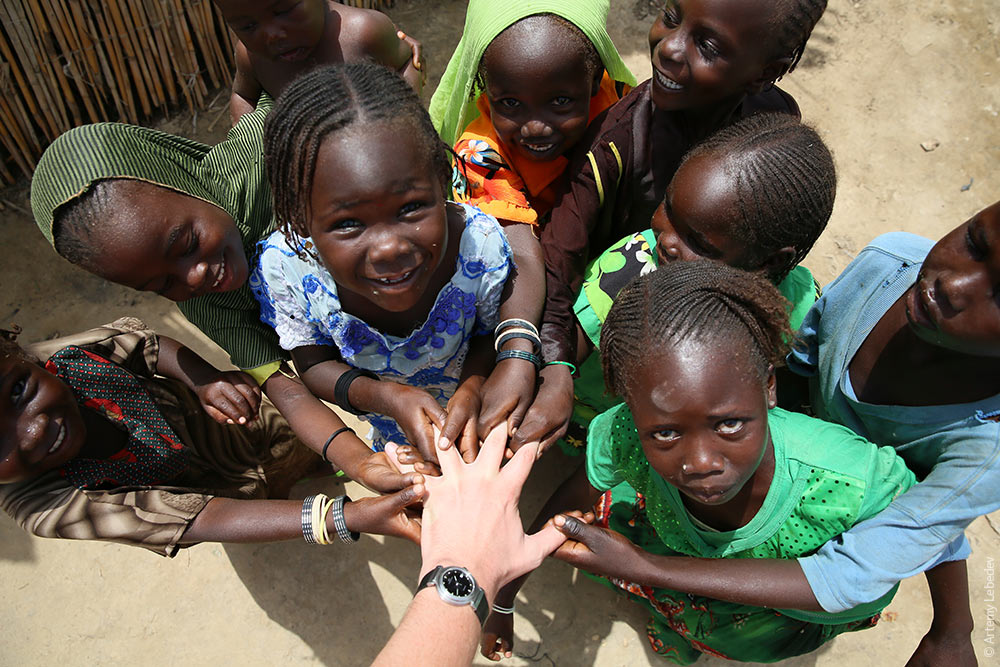 All the children ran over to touch me. The sullen girl. 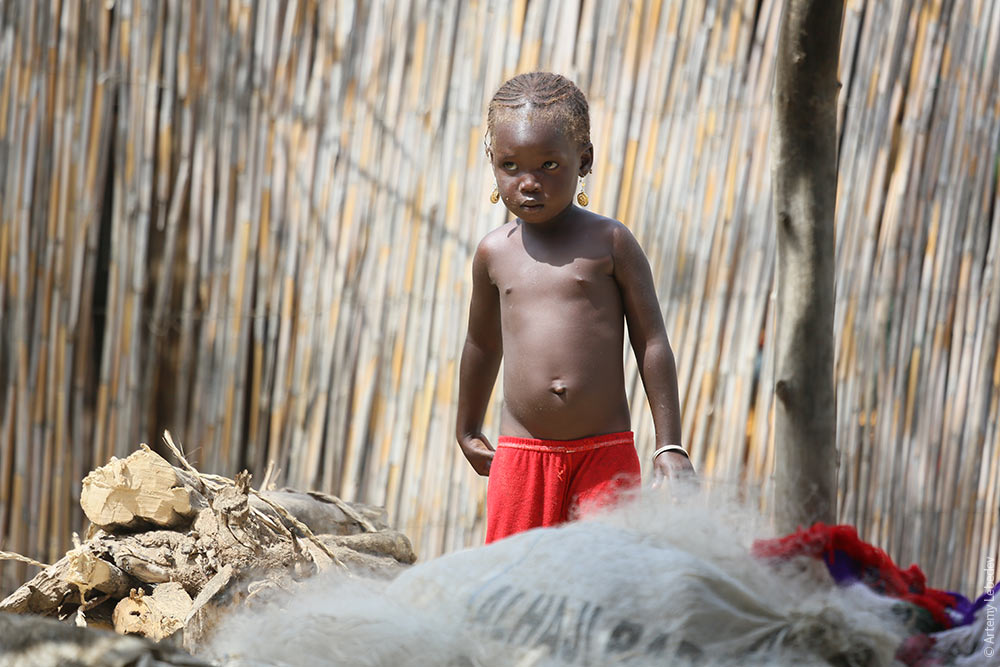 And the curious girl. 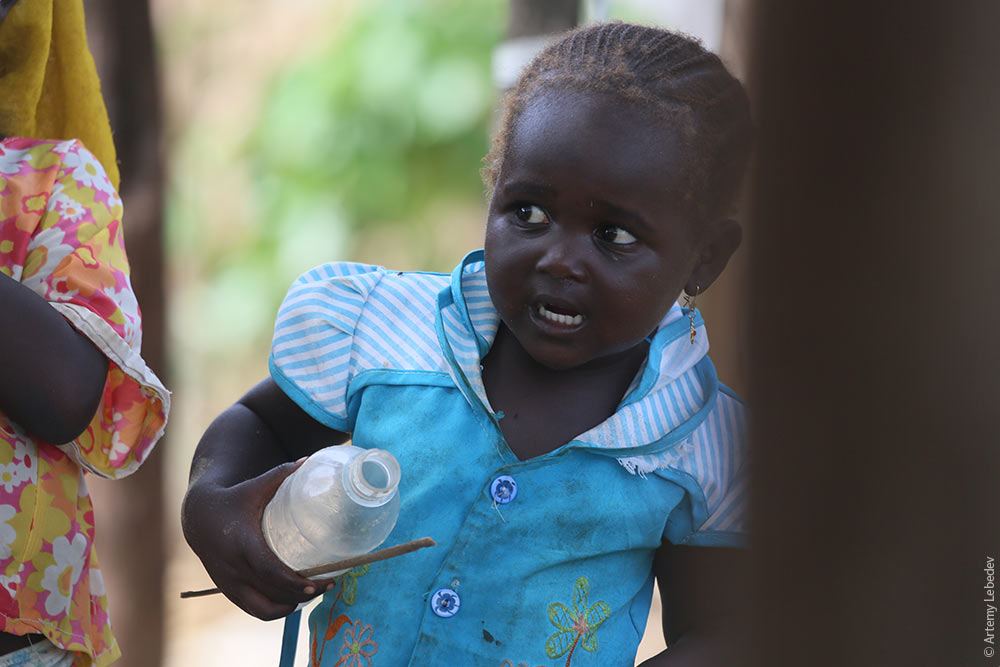 And the worried girl. 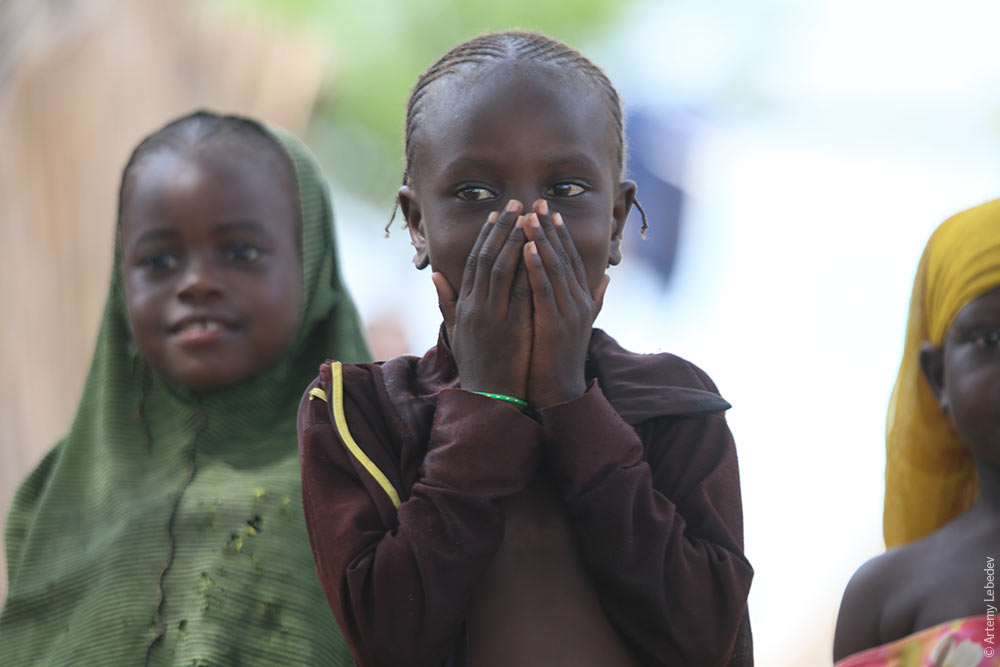 But no need to worry about me—I have security. I’m not sure this slacker knows how to do anything besides eat fish. But he does make foreign tourists feel safe. 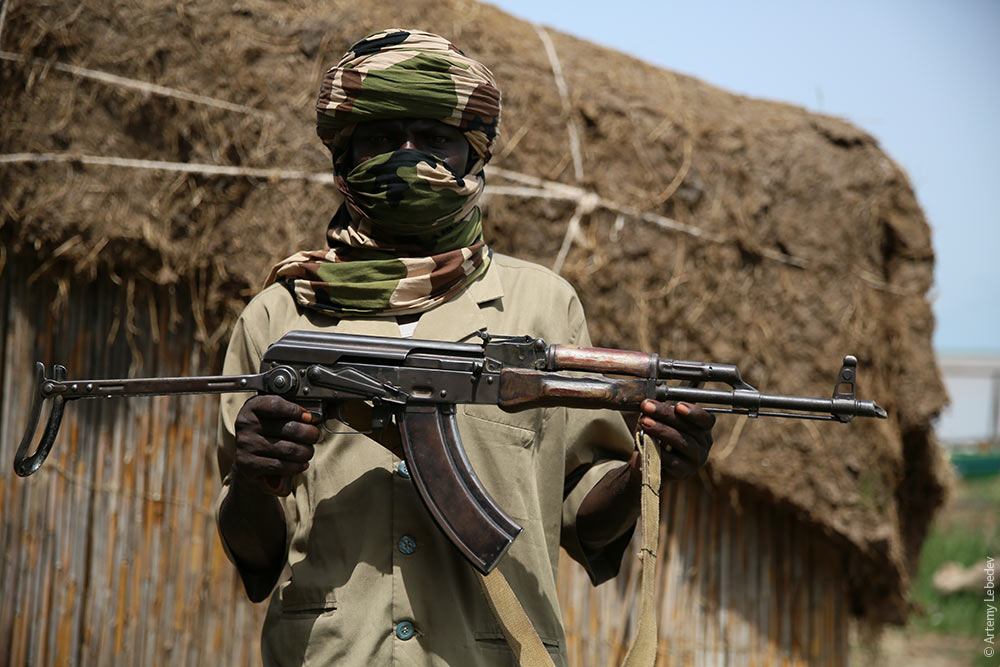 The only ones to worry about are the schoolchildren whose teacher thrashes them with a rod. I didn’t intervene because I got curious: how would this end? It ended with a correct answer. 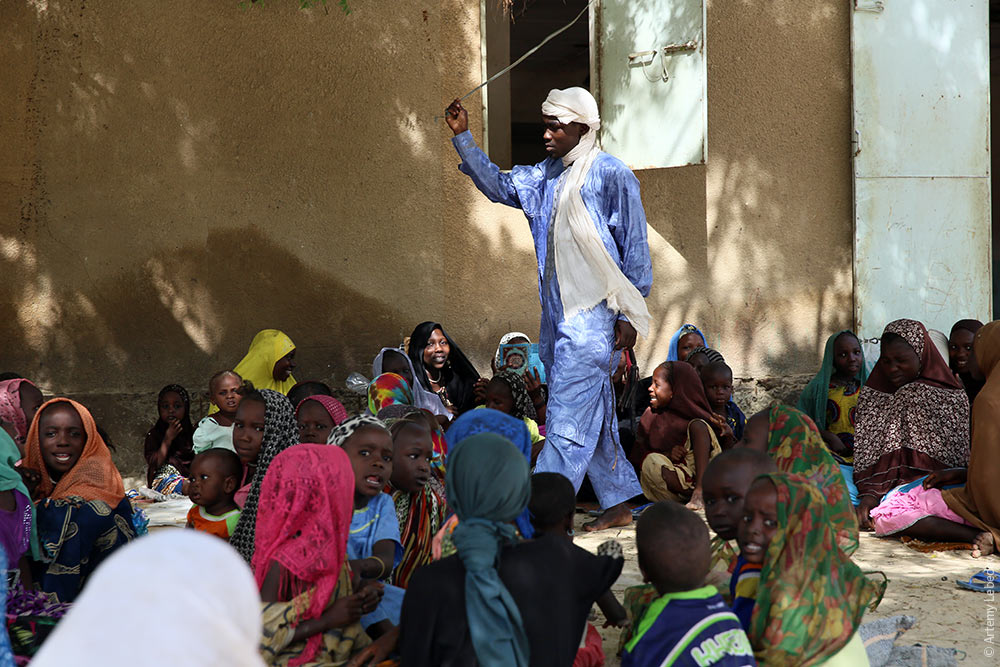 Women carrying their purchases home. 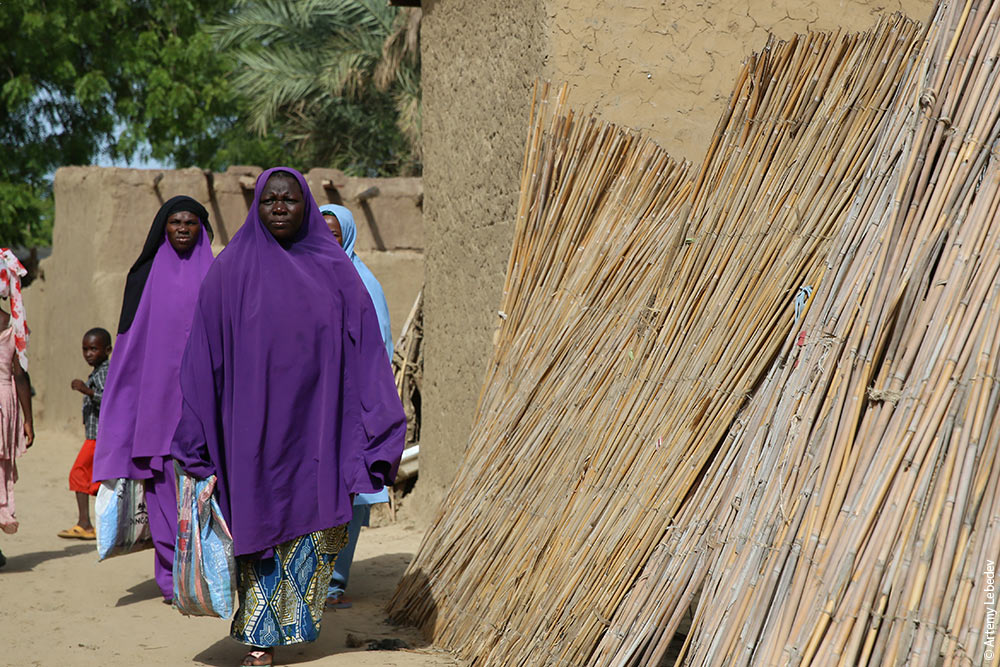 What could they have bought? Here it is, the assortment of goods in the village. 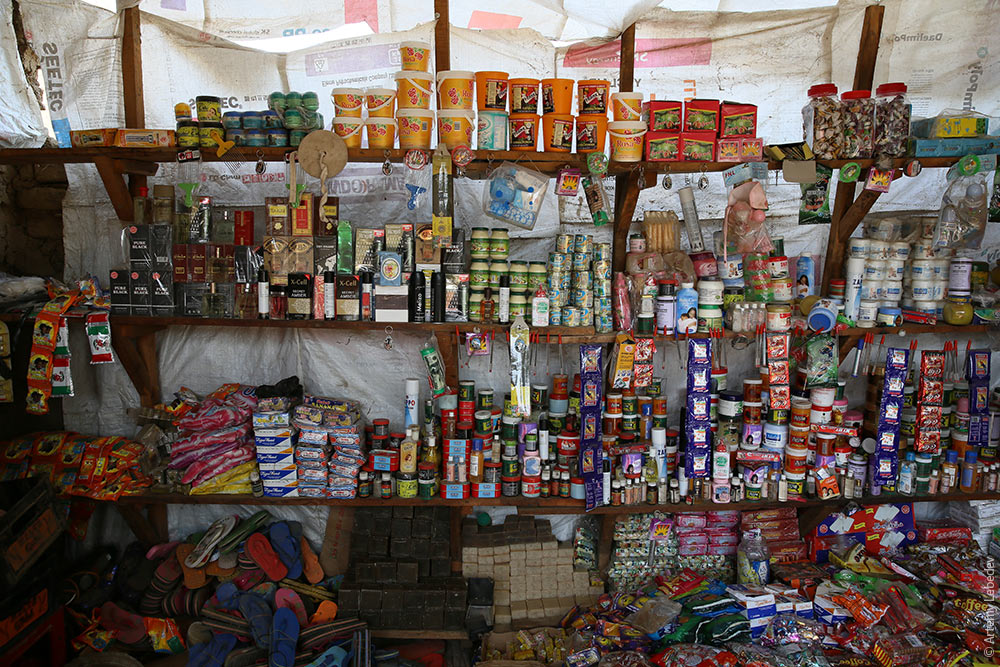 Plus fish, of course. 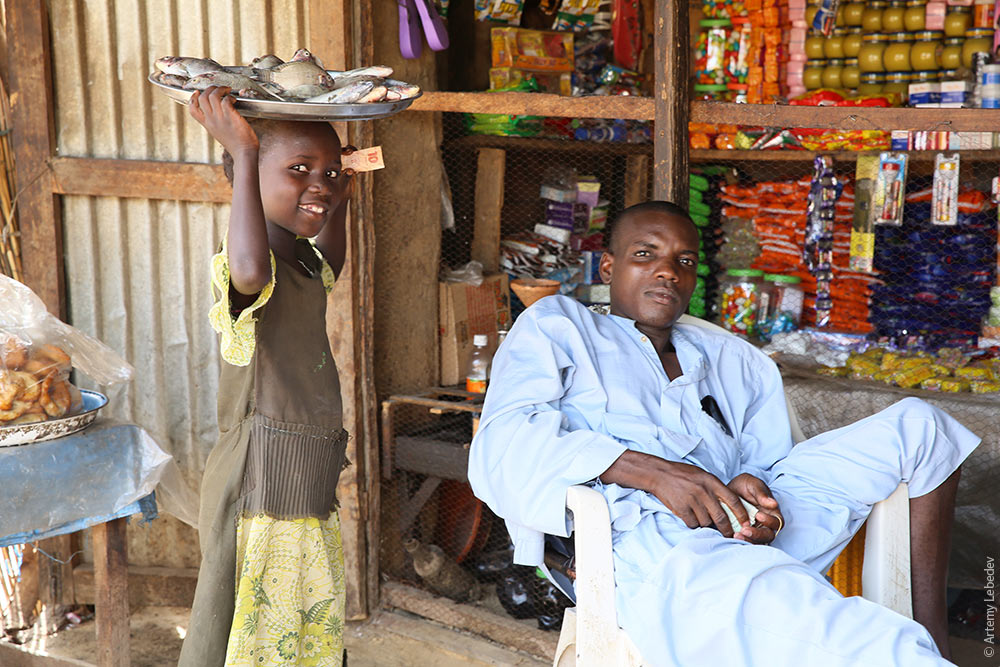 |